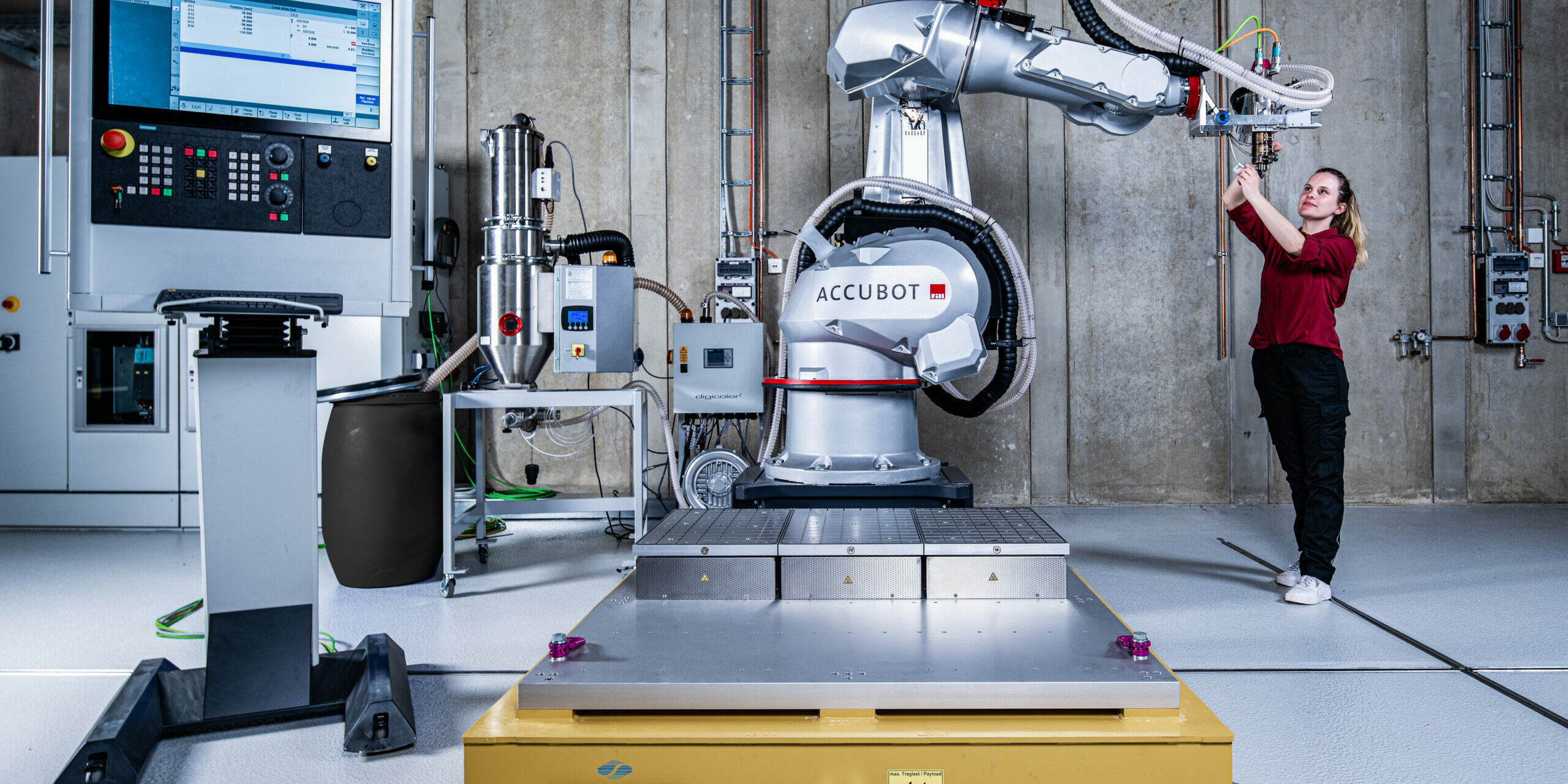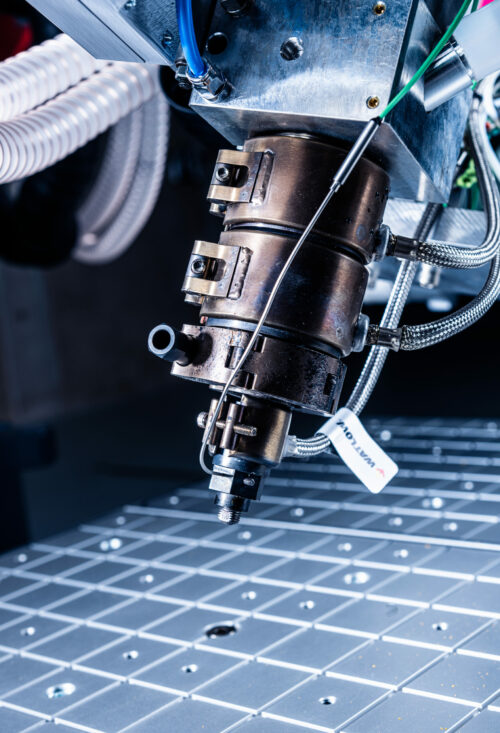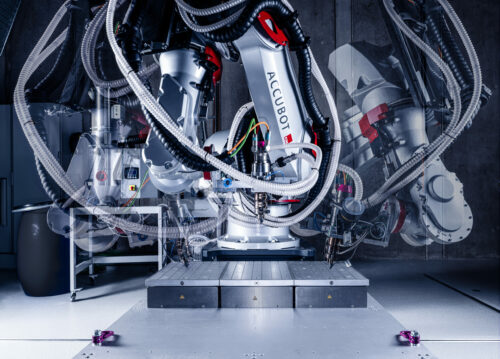Increasing sustainability and productivity is one of the biggest challenges of our time. Therefore, in industry, there is a great need for high-precision and flexible systems for additive manufacturing. At our Institute, specially designed CNC robot kinematics with a high absolute positioning accuracy allow precisely controlled path movements in three-dimensional space. In combination with specifically developed tools for the deposition of short or continuous fibre-reinforced materials, this creates an agile and flexible process for the additive manufacturing of thermoplastic fibre-composite structures.
CNC robot kinematics as a technology platform for research
CNC-controlled six-axis articulated robots are increasingly being used as machine tools. In this type of application, tools are mounted on the robot interface and controlled precisely depending on the robot’s movement path, enabling a wide variety of industrial processes to be implemented. Researchers here use such robotic systems for purposes including additive manufacturing, where material is continuously discharged by a print head along the programmed path to create a component. The ability to follow many different tool paths accurately and deposit the right amount of material in the right place is crucial, so that high-precision components can be produced without defects. Conventional industrial robots are often insufficiently precise at guiding a tool in space.
In collaboration with industrial partners, a high-precision CNC robot for additive manufacturing has been successfully put into operation at our Institute. The high degree of precision is achieved due to the factors involved in the robot kinematics and secondary encoders, which record the axis positions at the gear outputs. As a result, an absolute positioning accuracy of 110 micrometres can be achieved within the entire reach of approximately 2.2 metres, creating a unique environment for the development of additive manufacturing processes. A compatible CNC robot has been installed in the system at our Stade site to enable the scaling of developed processes. This achieves an absolute positioning accuracy of 250 micrometres in an area 18 metres in length and with a reach diameter of 5.5 metres. The CNC robot cells serve as technology platforms for the research, development and combination of 3D printing processes and fibre-composite manufacturing processes.
Powerful tools for additive manufacturing
The combination of CNC robot kinematics with a print head creates an agile, high-performance process for additive manufacturing. To this end, our Institute has teamed up with partners from industry to develop tools for depositing short and continuous fibre-reinforced materials. Another key area of focus is control depending on the movement path. A new technology for fibre impregnation also allows the cost-efficient production of continuous fibre-reinforced semi-finished products for processing as part of the additive manufacturing process.
The future of additive manufacturing of fibre-composite structures
As technology facilitators, CNC robots enable the tools developed for short and continuous fibre-reinforced 3D printing in industrial environments to reach technical maturity. Further research is being conducted into material development and quality assurance for whole-system process optimisation. In the future, this will open up the possibility of a process configuration for printing short and continuous fibre-reinforced material on multi-curved structures. Such developments will facilitate flexible and efficient production of fibre-composite structures.









